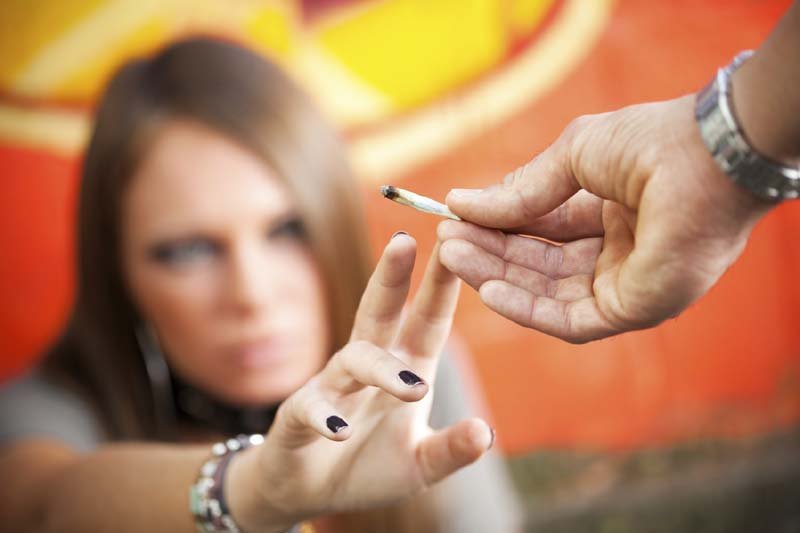Youth Addiction: The Current State Of Play : If you’re a parent of an addict or know a young addict, it may seem like a shocking and unusual experience. But, more young people are starting to use addictive drugs, or become addicted to drugs.
Statistics indicate that half of young people have misused both legal and illegal drugs. It’s also estimated that around two million teenagers are addicted to drugs.
This presents a big problem for parent and guardians. How to deal with an addict is a difficult thing to do when handled by a trained professional. So, it will be particularly tricky for parents.
This is true whether the young addict is currently struggling with a problem, or rehabilitating. But, the current culture surrounding addiction can make this tough. Addiction is still often seen as a character flaw or a mistake in behavior.
This is not only incorrect in many cases, but can also hinder the rehabilitation process for a lot of addicts. But, many parents only have scolding and praising as their default tools. So, it can be tough to deal with such a uniquely demanding issue.
This is why we put together the below list to help you review different tactics you can use to help parent an addict in how to get sober and how to stay sober.
Parenting Tactics With An Addict
A key focus for many when parenting addicts who are struggling or undergoing rehab is change. The idea is to inspire or encourage change away from the addictive substance. One of the most popular models of communicating with addicts, or others seeking change, is the Motivational Interviewing model.
This is one of the few specific methods that has been shown to be especially effective in research on addicts. But, communication methods alone leave a lot of progress that can be made on the table. Parents are in a rare position in that they live with the person struggling with addiction. So, they can impact their environment in a much more holistic way.
Below are some of the tools we’d recommend when parenting addicts.
Open communication and active listening
Open communication is often one of the biggest issues between addicts and their parents. This is because addiction is usually kept a secret by the addict. So, it can be hard to open up about the problem both before and after it’s discovered by parents.
Once open communication occurs, the way in which you communicate as a parent is key. One tool used in Motivational Interviewing is active listening.
This is where you repeat key points of what someone tells you to confirm you hear what they’re saying. You also attempt to clarify what they’re saying and the root issue they’re trying to communicate. Further tutorials of this method can be found online.
Through establishing effective communication, you can help identify problems that lead to addiction or relapse and help create an environment that encourages rehabilitation.
Developing action plans
Another key element of the Motivational Interviewing is moving from communication to action. This has to be driven by the addict, but can be guided the parent. Developing action plans can be done alongside rehabilitation or in preparation for rehab.
These will help translate a desire for rehabilitation into actual results. These results can then be built on for further change and growth.
Environmental changes
As effective as Motivational Interviewing has become, there is more progress that can be made through combining environment changes. This is because many attitudes and behaviors can be triggered by certain things in an addicts’ environment.
This can be in the home, at work, or with friends. These triggers can lead to habitual drug use or a breakdown in change mentality. So, identifying triggers through communication and changing or eliminating them will help improve chances of recovery.
Seeking qualified council
No matter how well you carry out the above methods with your child, you will still be less equipped to deal with addiction than a well-trained professional. So, using a professional rehabilitation service should always be your primary method of fighting addiction.
They can help bring a qualified and objective perspective on how best to bring about complete rehabilitation. This is often impossible with parents, who have a high emotional investment in their children.
Along with this, consulting a qualified professional yourself can help you be better equipped to assist your child’s efforts at home. This will maximize your child’s chances of success and help him, or her, to move closer to permanent recovery.
Wrap Up And Take Home Points
Addiction is a common problem among underage people today. But, many parents trying to help their child rehabilitate can often do more harm than good.
Change and rehabilitation will always need to come from within the addict. So, by using effective communication methods and creating a good environment, you can help your child rehabilitate from drug addiction and prevent any future relapse.
But, outside help should always be consulted first in order to make sure the correct approach is being taken and that recovery remains consistent throughout the addict’s life, not just when they’re underage.
If you are still struggling with your addiction we recommend you seek professional help as soon as possible. We recommend visiting a trusted drug rehab facility in Seattle, Washington.
Related Videos:
Youth and Addiction: Are You on Push Start or Self Start? – IIT Delhi Students with Sadhguru, 2017
https://www.youtube.com/watch?v=i2NL_GBj9yw?autoplay=1&rel=0
Addiction- Short Movie (Coastal Youth Festival 2017)
https://www.youtube.com/watch?v=FSRNBpGmiXs?autoplay=1&rel=0
The Underground Youth – Addiction
https://www.youtube.com/watch?v=zb57GvFad6M?autoplay=1&rel=0
REAL LIFE DRUG STORY VIDEOS — Drug Addiction Experiences/Teenage Drugs Stories
https://www.youtube.com/watch?v=lOLb21bii-A?autoplay=1&rel=0
Youth Addiction: The Current State Of Play




